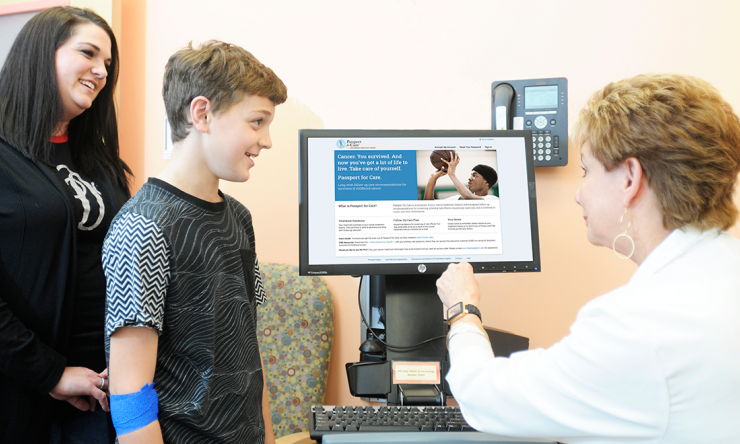Passport for Care plans for childhood cancer survivor's future
The end of cancer treatment does not mean an end to the challenges facing childhood cancer survivors. They have a higher risk for other health problems related to their disease and treatment later in life. Up to one-third of childhood cancer survivors are at risk of serious and even potentially life-threatening late effects.
Passport for Care is a free online resource developed by Baylor College of Medicine and Texas Children’s Cancer Center that provides a survivorship care plan for both the survivor and their doctor. The new Screenings Recommendations Generator tool allows any childhood cancer survivor to find potential late effects and how to manage their care, even if they are no longer being followed by a cancer treatment center.
More than 37,000 survivors treated at 138 clinics around the world are using Passport for Care through their clinics. But patients who are not signed up through their clinic may benefit from Passport for Care’s resources by using the Screenings Recommendations Generator. Survivors can enter their detailed cancer treatment summary, from specific chemotherapy drugs to radiation treatments and surgeries. The system will then determine potential late effects tailored to their specific treatment regimen. The follow-up care recommendations for these late effects, developed by the Children’s Oncology Group, can be printed and given to any healthcare provider by the survivor.
“This tool is especially helpful for patients who have moved on to other doctors who they did not see as a child and who might not be familiar with their particular treatment and the subsequent health risks,” said Dr. David Poplack, founder of the Passport for Care and associate director of the Texas Children’s Cancer and Hematology Centers. “It helps physicians understand their patient’s history and know how to address future health problems.”
In addition to the Screenings Recommendations Generator, the website also provides resources for survivors including a nurse navigator, educational information, news related to survivorship and opportunities to volunteer for participation in research studies.
“We created Passport for Care with the goal of empowering survivors in their healthcare decisions,” Poplack said. “Their care doesn’t end when cancer treatment is over. Survivorship care is a lifelong journey.”
Passport for Care is funded by the Cancer Prevention & Research Institute of Texas (PP100090) and is also currently supported by a grant from Hyundai Hope on Wheels.











